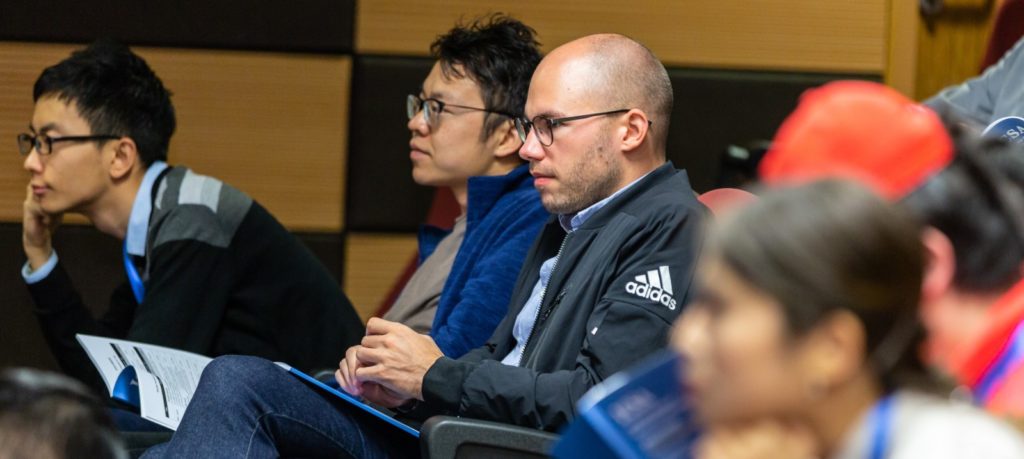- ...
Postgraduate Studentships - Search for funding opportunities.

Avi Gordon, is the author of MBA Admissions Strategy: From Profile Building to Essay Writing. He gives his expert tips on what to say in an MBA application
Many well-meaning guides to university and graduate school applications focus on the technical. The dimensions of correct and authentic personal communication by the applicant. This is important. But it’s also important to connect with your reader. The first step in doing this is understanding who your reader is.
Taking an MBA Admissions Committee as our example (although everything here is true of other competitive graduate admissions) the committee may have members representing different stakeholder groups. However, the real force is the Director or Dean of Admissions and admissions officers that report to that role. Every admissions officer is of course different.
But it appears in most cases becoming an admissions officer is not a direct career choice. Most come to it sideways, and have had a professional life in more than one industry. This is a function of having broad interests and having “people-stuff” at the center of what they are interested in and know about.
The implication is this. The professional admissions officer is a completely different person to the average MBA applicant. They do not live life to lead the marketing strategy, or create positive free-cash-flows. Nor do they take companies public, or other things that MBAs or technical professionals typically live for.
Now, if you are to persuade them of your value as an MBA candidate, you need to make the effort. To anticipate and engage their psychological fulfillment and talk to their language of motivation. You need to reach their hot spot. What is that? Why do they do their job in the first place?
They are in admissions because they are the kind of people who are interested in:
Your lucid, insightful, carefully thought-through self-analysis and life-path analysis is engaging. Complete with a well-developed understanding of your motivations, and organizational and leadership profile.
No matter what the particular business or technical thrust of your MBA application may be, you need to say it by framing it and yourself in these motivational and behavioral terms.
I know of no better example of Adcom’s call for the reflective thinking about your choices and motivations than this (2004) guidance to applicants from Stanford GSB’s MBA admissions office: Our goal is to gain insight into the person behind the resume.
We encourage you to share with us your influences, motivations, passions, values, interests, and aspirations. Although there are no “right answers” here, the most effective essays emphasize the “who” and “why” as well as the “what.”
We believe each applicant has a set of unique experiences and perspectives to bring to the Business School community. This is your opportunity to share what you consider to be most important: treat your essays as “conversations on paper.”
Here is the 2009 Stanford essay advice to applicants:
The best examples (of Essay 1) reflect the process of self-examination that you have undertaken to write them. They give us a vivid and genuine image of who you are—and they also convey how you became the person you are. They do not focus merely on what you’ve done or accomplished. Instead, they share with us the values, experiences, and lessons that have shaped your perspectives. They are written from the heart and address not only a person, situation, or event, but also how that person, situation, or event has influenced your life.
Here is another example from Stanford
The most impressive essays are the most authentic… The personal essays give us glimpses of your character and hopes. In each essay, we want to hear your genuine voice. Think carefully about your values, passions, aims, and dreams prior to writing them… Do some deep self-examination, so you can genuinely illustrate who you are and how you came to be the person you are.
Share the insights, experiences, and lessons that shaped your perspectives, rather than focusing merely on what you’ve done or accomplished. Write from the heart, and illustrate how a person, situation, or event has influenced you. Focus on the “why” rather than the “what.”
All the top schools have offered this kind of guidance over the years. Knowing who is reading you or interviewing you, and what their motivations and preferences are, is crucial for creating fit-based communication.
To connect with them you need to do the work of stepping into their shoes and understanding their point of view: what they value, what persuades them, what’s most important about you to them, and why.
If you know who they are, and you take this fully seriously, you will be able to think through any MBA application, including your own, as an admissions officer would, and know why—if you were in their position—you would say yes or no to it.
*Extracted with edits from Avi Gordon, MBA Admissions Strategy: From Profile Building to Essay Writing, McGraw Hill Education (3rd Edition, 2017). Avi Gordon is the Director of the MBA Admissions Studio (mbastudio.net)